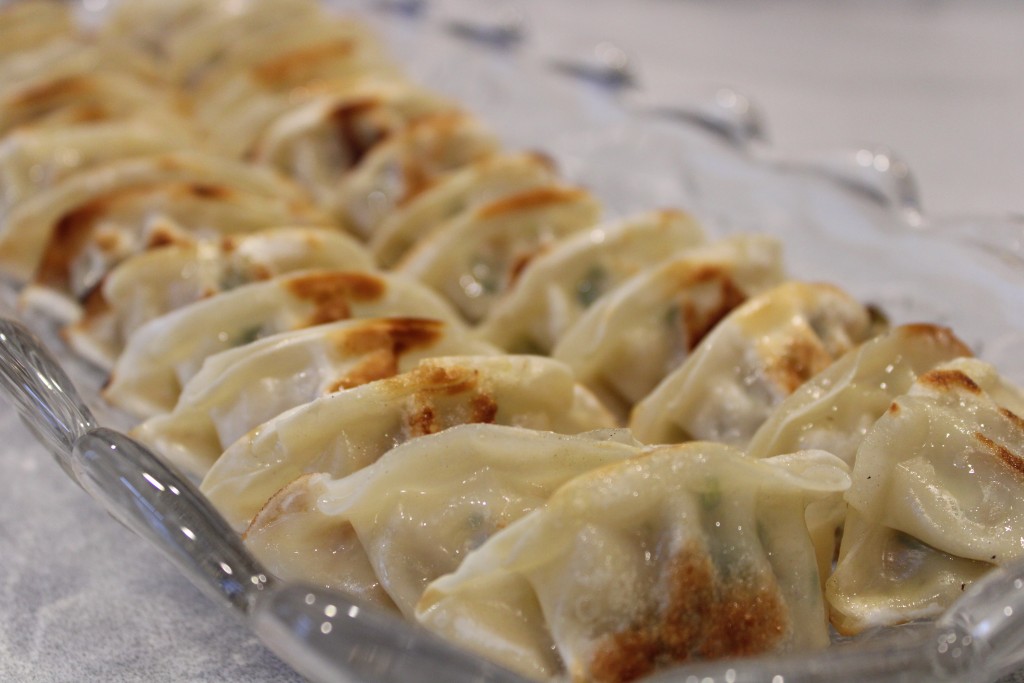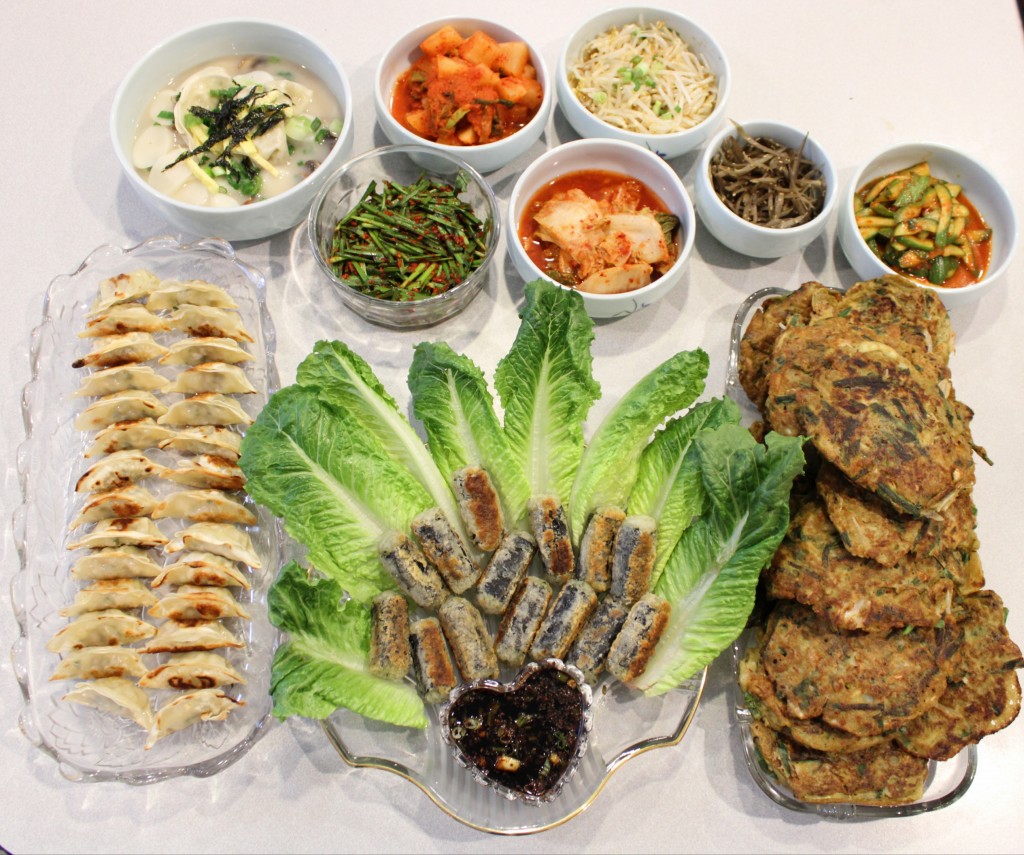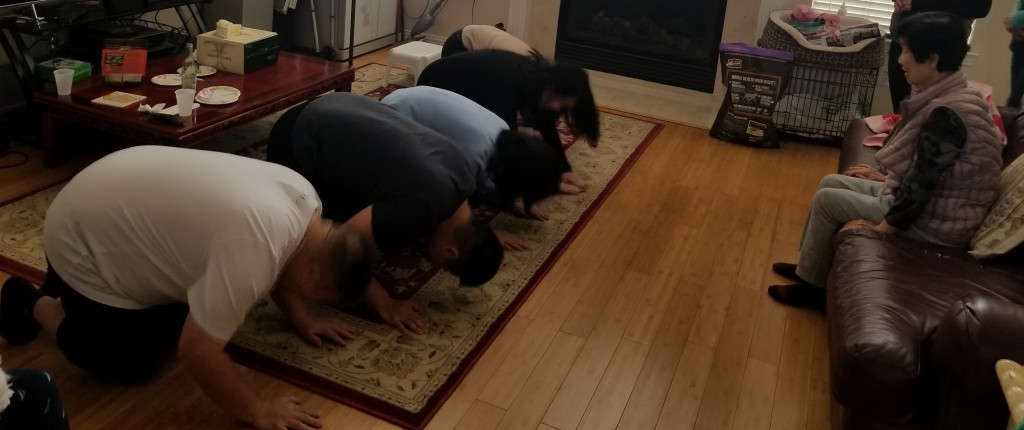Korean New Year: How COVID Changes Brought Unexpected Insights Into My Family Traditions
ArtandSeek.net February 11, 2021 7For most Americans, New Year means a glass of champagne and the Times Square Ball drop. Me? I celebrate with my extended family, eating rice cake soup or tteok-guk (떡국).
This year, the pandemic disrupted those plans — and at first, it felt like a total loss.
Korean New Year revolves around family. And my family revolves around my halmoni (할머니) or grandmother. She’s our matriarch. Slow to speak, yet powerful when she does.
She’s a woman of few requests. But on New Year, she expects to see all of us…her legacy.
We sit in her kitchen for hours, cooking and catching up. A dozen or more relatives bump shoulders. It’s lively — ok, it’s loud. Maybe louder than most families.
We remember our ancestors. We enjoy white rice cakes that represent purity and prosperity because of their color and coin-like shape.
It’s the one day of the year I feel more Korean than American.
But this year, for the first time in my life, my immediate family stayed home. We still fried up mandu (만두)— Korean dumplings — and mixed the bindaetteok (빈대떡) or mung bean cake batter.

Mandu (만두), Korean dumplings, are eaten on New Year’s Day. My family usually makes them homemade, but this year we fried up store-bought mandu from H-Mart, a Korean grocery store. Photo credit: Elizabeth Myong.
It wasn’t the same.
For me, changing the tradition — defied the very meaning of the word and its constancy.
I tried to commiserate with my family. Are we losing yet another thing because of the pandemic? I asked my older sister Michele.
“I think traditions have to adapt to the times, so I think people will remember this as a unique thing that we didn’t really have a choice in the matter,” she said. “I think it adds to the reality, life and things you just have to adapt to.”
My mom Jan, who immigrated from Korea at 17, agreed:
“Our world is becoming more and more unpredictable and I think we have to really adapt to how to preserve important things within us and that is that beautiful culture,” she said. “But I think we are becoming wiser, hopefully, to keep that and use it and do the best with what we can, best with what we have.”
But…there was still so much we were losing. Gathering. Being together. All of our family. I could hear the sadness in my mom’s voice. I knew how much she wanted to be with my halmoni on the day:
“I do miss my mom but I am ok because she’s getting old, she doesn’t have to do all the work.”

We celebrated Korean New Year at home this year with a lunch of dumplings, fried seaweed rolls, rice cake soup, mung bean cakes, and kimchi. Usually, we’d have a massive feast and eat throughout the day. Photo credit: Elizabeth Myong.
We sat down to our meal of rice cake soup, fried seaweed rolls, dumplings and kimchi. The food just tasted different — without the touch of my grandmother’s well-worn hands.
And yet, we were still eating the same dishes.
It helped me understand.
Letting go of how we’ve done things in the past is the only way tradition can survive — it’s why we grab our rice cakes from the frozen aisle of H-mart instead of buying them fresh from a local street vendor.
Tradition has to be able to endure global pandemics. Korean New Year has been around for thousands of years…years that included plagues, wars, recessions…
Maybe it’s the things that seem totally at odds with tradition that actually help preserve it.
Like the sacrifice my mom is making — ignoring her own desires, putting my halmoni’s safety first. I don’t think there’s a more poetic way of doing justice to a holiday that calls us to honor our elders.

My cousins and I bow to our grandmother on New Year’s Day 2019 for our sebae tradition. Photo credit: Elizabeth Myong.
Sebae (세배) is another New Year tradition. We kneel to the floor and bow deeply to our elders to wish them good health and prosperity. In exchange, we receive money and words of wisdom.
But this year, a phone call to my halmoni had to suffice.
Of course, it was a poor substitute. But it’s also what it looks like to hold on to the core tenets of the tradition — health, wealth, an appreciation for life — in 2021, when the virus still rages on.
That night, my mom dropped off food for my grandmother. When mom got home, she handed me a white envelope. As I opened it, green and ivory bills fell out.
I smiled — I knew who it was from.
For a semi-reformed traditionalist, it was a helpful reminder: Some things never change.









